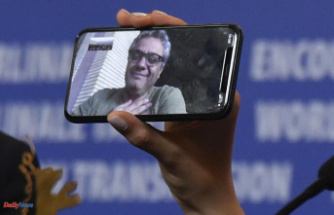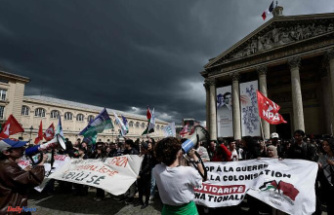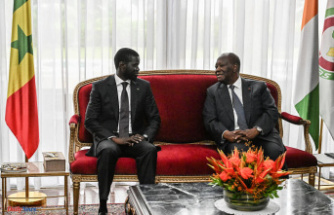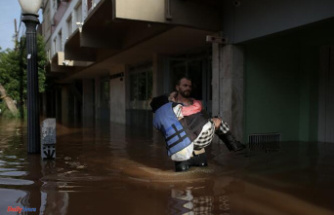Recep Tayyip Erdogan was sworn in this Saturday as President of Turkey in a ceremony attended by more than thirty international leaders, including the NATO Secretary General and the heads of state of Armenia and Venezuela. "We believe that these elections were a vote of confidence towards the presidential system. These elections open the door to a new era," Erdogan declared during the inauguration of his post in Ankara, alluding to the country's constitutional system, in which the President concentrates much of the executive and legislative power. "We will continue to work hard to achieve our 100th anniversary project of Turkey in the next five years," he noted, referring to the 100th anniversary of the Republic of Turkey.
Erdogan, in power since 2002, extends his mandate for another five years after winning the second round of the presidential elections with 52.18% of the vote, against opposition leader Kemal Kiliçdaroglu, who obtained 47.82% of the vote. support.
The Turkish leader, after exhausting two legislatures as prime minister, became president in 2014 and renewed the position in 2018, after obtaining new executive powers after approving a constitutional change by referendum.
The president was sworn in by Parliament and then visited the mausoleum of the founder of the Turkish Republic, Mustafa Kemal Atatürk. The ceremony continued in the Palace of the Presidency, where some twenty heads of state and 13 prime ministers were waiting for him, as well as ministerial representatives and international organizations. The event was attended by leaders close to Erdogan such as the president of Azerbaijan, Ilham Aliyev, the Hungarian prime minister, Victor Orban, or the president of the Lower House of the Russian Parliament, Vyacheslav Volodin.
NATO Secretary General Jens Stoltenberg also attended Erdogan's inauguration as Alliance leaders hope Ankara will give the green light for Sweden's entry ahead of the July summit in Lithuania. NATO announced that it would hold bilateral talks with the Turkish president over the weekend. Ankara has delayed approving the request for months, accusing Stockholm of harboring Kurdish politicians it considers "terrorists" whom it links to the PKK, the Kurdish guerrillas operating in Turkey. For its part, the Swedish government modified its anti-terrorism law to adapt to Ankara's demands and announced its "clear message" at a meeting with Turkish representatives in Oslo. Although the Turkish government indicated that it would ratify Sweden after the elections, so far no measures have been announced in this regard.
On the other hand, another visit to Erdogan's inauguration that has generated surprise is that of the Armenian Prime Minister, Nikol Pashinyan, a symbol of the recent thaw between Ankara and Yerevan. In recent years both countries have resumed their diplomatic and economic relations and restarted flights between Turkey and Armenia. The last time an Armenian leader visited Turkey was in 2009. Furthermore, a few days ago Pashinyan announced that he is ready to recognize the disputed territory and self-proclaimed Republic of Nagorno-Karabakh as part of Azerbaijan - which has Turkish support - if Baku guarantees the safety and rights of the Armenians living in that territory.
On Friday afternoon all 599 new parliamentarians were sworn in, except for the deputy from the leftist party Can Atalay (Turkish Workers' Party), who remains in prison serving an 18-year sentence for his role in anti-government protests in 2013. The Turkish opposition has requested his release, since according to the Constitution he enjoys parliamentary immunity while he is a deputy and must continue with his sentence when the legislature ends.
Erdogan is expected to announce his new Cabinet in the next few hours, with changes in most ministries. All eyes are on the new finance minister, who will supposedly apply a more orthodox policy to curb the inflationary crisis that has plagued the country for a year and a half. In his victory speech, Erdogan said inflation was the country's most pressing problem. His low interest rate policy and his interventions in the Central Bank have caused an increase in prices, which reaches 40%, although in some cities it exceeds 100%. The currency has depreciated severely in recent years and is so unstable that it has fallen 5% since his victory was announced.
According to the criteria of The Trust Project












